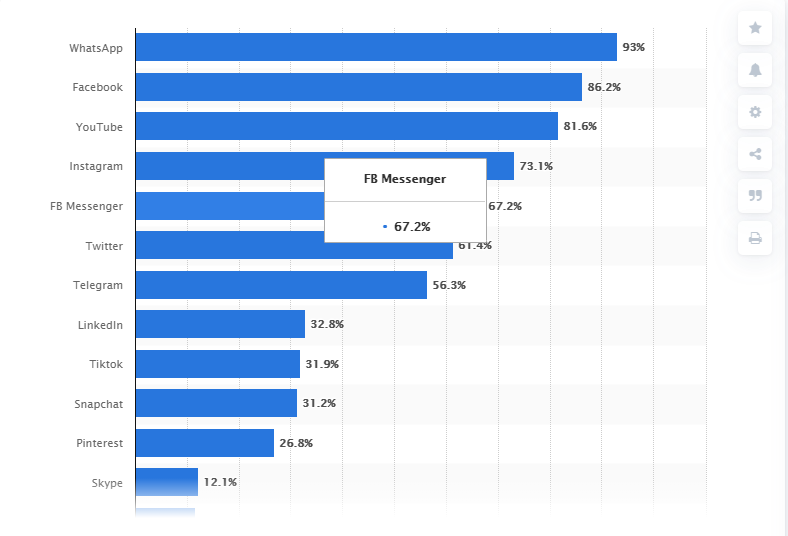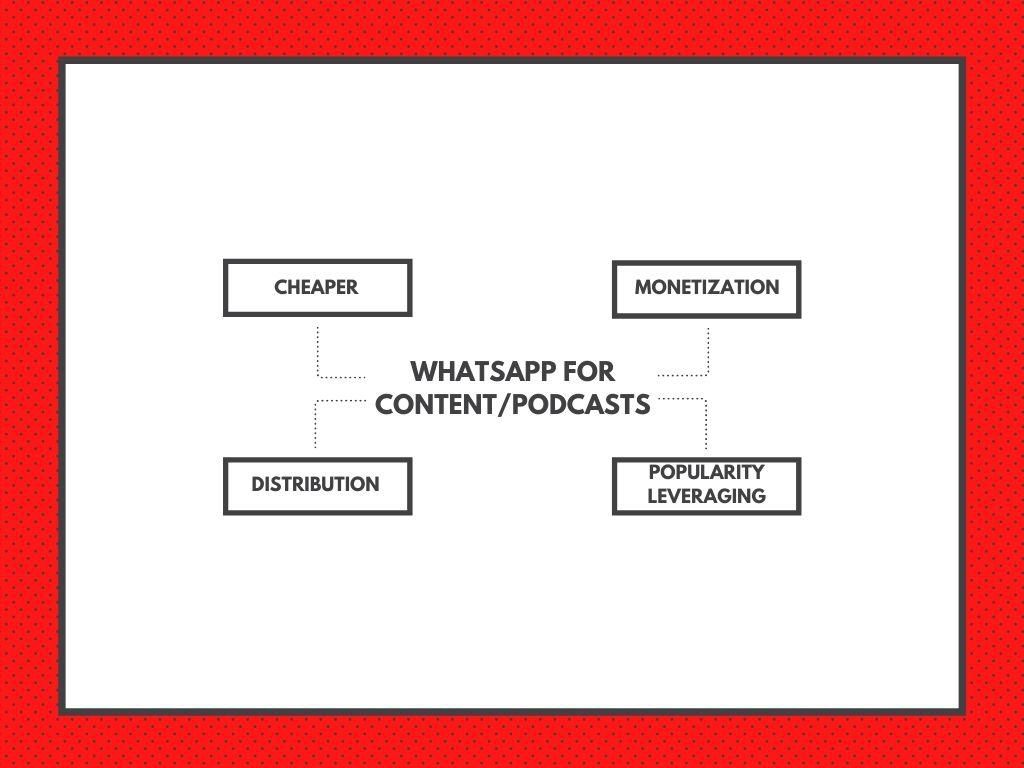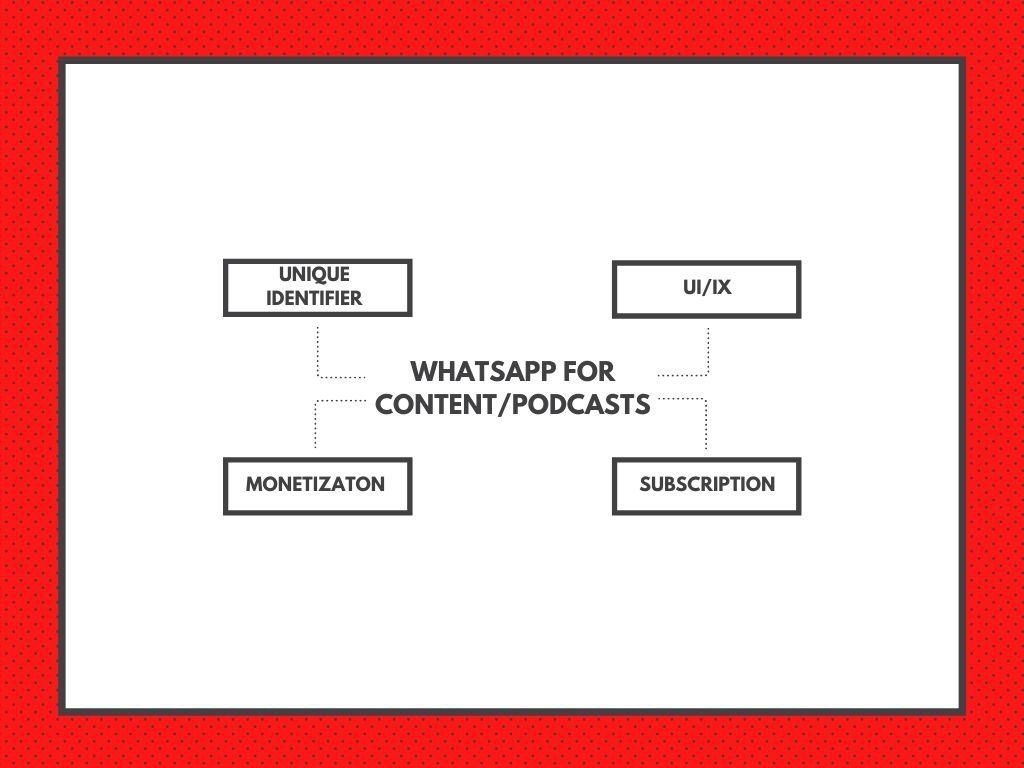Here is how WhatsApp can disrupt Africa’s podcast and audio distribution industry
)
During his conversation with Kevin Samuels on his podcast, American rapper and broadcaster Joe Budden jokingly noted how the 2020 COVID-19 lockdown impacted American podcasting industry.
He noted that listeners gravitated towards new podcasters like Kevin Samuels rose during the lockdown, to the detriment of established brands like the Joe Budden Podcast.
While that offers insights into how limited podcasts audiences make podcasts compete against each other for listeners, it also offers insights into the growth of the American podcast industry during the lockdown.
In a recent article, Wall Street Journal reported that, “Podcasts exploded in popularity during the lockdown and are on track to bring in more than $1 billion in U.S. ad revenue this year…”
The explosion is a result of heavy investment in podcast infrastructure by Spotify, Apple and Amazon over the past two years. The investment has since continued as Spotify has purchased Locker Room and partnered with Facebook to distribute free content to Facebook users. In consequence, Apple and Spotify have inevitably moved toward an exclusive content-subscription tier model.
In Africa, that is a far-cry
Recently, David Adeleke wrote in his April newsletter, Communique that, “Despite being around for more than 20 years, podcasts have still not caught on in Africa…
"According to Abe Adeile and Osagie Alonge, both involved in making the famous Loose Talk Podcast and are now co-founders of Visual Audio Times, a podcast network and production company in Lagos, Nigeria, podcasting’s biggest hurdle in Africa is inadequate infrastructure.
“Unlike radio which is cheap and requires no extra cost to access, podcasts need additional data and specific phone features that many Africans cannot afford.”
Like major labels, radio has too much leverage and offers comparatively excessive ease of access that it will never go out of style. According to GetdotAfrica, Africa’s internet penetration reached an all-time high of 63% in 2020 but that’s still some way off the global benchmark of over 75%. Yet, the internet is still expensive in Africa.
As GetDotAfrica also reported, two African countries - Nigeria and Senegal - tussle for the position of the world’s most expensive internet. Consumer behaviour in Africa is also complex; payment for internet-based phenomena isn’t exactly commonplace yet.
There is hope because over half of Africa’s age demographic is under 19. That speculatively suggests an evolution in consumer behaviour because these kids grew up on internet-related culture, but the current reality is still upon us.
Content and distribution problems
Fundamentally and as unintentionally noted by Joe Budden during that conversation with Kevin Samuels, podcast audiences are kind of non-fragmented. Thus all podcasts have to compete for the same audience.
In Africa where podcast audiences are severely limited, there is also a content problem. Everybody seems to recycle the same podcast formats because more effort-intensive formats might not produce the commensurate audience and generate the appropriate return on investment. Thus, creators are uninterested to do the required research and work.
But in 2020, Max FM OAP, Debola Ajiboye told this writer that, “Podcasts can work to grab more audiences if the content is attractive to Nigeria’s mainstream audience - in turn the radio audience. Imagine what it would be like if someone made a limited podcast series about the life and times of Ochanya Elizabeth Ogbanje and narrated it in pidgin…”
In a brief conversation, Adeleke also tells this writer that, “If someone were to do a podcast about the ‘Life and Times of Clifford Orji,’ I will listen…”
In his newsletter, Adeleke narrated a personal experience. Two years ago, he saw a Nigerian man listen to a WhatsApp voicenote that ran for over 30 minutes. He then concluded that Nigeria just doesn’t have a content problem, but that podcasts need to meet people where they are.
The solution is WhatsApp
You notice how Adeleke specifically referenced the tendency for Africans to listen to WhatsApp voicenotes with ease, the true way to disrupt podcasts in Africa is WhatsApp.
On November 20, 2020, I wrote an article about Facebook’s plans to open an office in Lagos, Nigeria. I wrote under a heading tagged ‘WhatsApp For Podcasts’ that, “Facebook has a unique opportunity to make podcast recording and distribution easy and straightforward in a way that could benefit the economic realities of Africa.
“All that has to happen is to capitalize on the voice message feature of WhatsApp and WhatsApp messaging. Amazon and Apple have also made great inroads in the podcast market.”
Facebook is arguable the most influential new-age tech company in Nigeria and even Africa, barring Multichoice and MTN, maybe even Transsion. Over 24% of Nigerians used Facebook in 2020. WhatsApp was used by around 28 million Nigerians in Q3 2020.

Adeleke argues that the most dominant apps you would find on any Nigerian’s phone are Facebook and WhatsApp and he is right.
WhatsApp presents Facebook with a unique opportunity to own disrupt podcasting by singlehandedly owning podcast distribution in Africa if podcasts can be distributed as voicenotes.
This would abridge the correct model of podcast streaming, which is unhealthy for Africa’s expensive data in terrains with entrenched poverty rates. People would easily download podcasts with good content as voicenotes and then listen without hassles of the internet quality. Africans are more used to downloading anyway.
In 2020, Martin Nielsen of Mdundo told me that over 150 million Africans downloaded music over three years prior to 2020. In December 2020, it was reported that Naijaloaded had a stunning one billion unique page views in 2020 alone. This model could also help Facebook to monetize WhatsApp.
In a July 2020 article, I also wrote that, “Facebook already has incredible reach and penetration with WhatsApp and it should look to do something with podcasting on WhatsApp. It will solve the problems of data if podcasts are presented in voicenote formats.
“Facebook - as a company - has been shortchanging itself over the past few years. With Facebook, Instagram and WhatsApp, it has a unique power to influence media, content, entertainment like no other, but hasn't cashed in.”
How will this work?
Image: Reduced Data usage/Cheaper, Monetization, Distribution of good content… all tied to disruption

Over the past few months, Facebook has moved into a creator-centric model. It has revamped Facebook with a Spotify mini player, launched Facebook BARS for the Hip-Hop industry, launched a chat room feature for WhatsApp on desktop, launched a newsletter that aims to benefit from Substack’s implosion, positioned Facebook Watch to count for Billboard charting and launched Live Audio Rooms.
Still, it struggles to monetize WhatsApp, the platform it purchased for $19 billion some years ago. Here is how the change would work;

Unique Identifier like a phone number
The podcast platform will mimic WhatsApp for Business. This time, it would be WhatsApp for Content/Podcasts, to which a unique identifier (number) is tied. Currently, a phone number is the unique identifier for WhatsApp.
Thus, instead of sending out a Linktree, a podcaster would send out that number/unique identifier and potential listeners can add it up. In essence, WhatsApp For Content/Podcasts would be like a hybrid of group chats.
User Interface

Instead of the chatroom being like a regular chat room/group chat, it would have four unique interfaces; updates, news, reactions [likes, dislikes, comments, voicenote reactions] and other features - which could be for merch, brand deals, ad pitches and so forth.
On the profile end of that particular number/unique identifier, WhatsApp for Content/Podcasts must segment each media file by content type, not just muddle them up as it currently does.
Monetization and Subscription
Currently, Podbean charges between $100-$500 for yearly podcast upload plans. Imagine the amount of disruption that could happen if WhatsApp For Content/Podcasts only charges $50 per account every year.
It could also take percentages off merchandising and ad placements - for other podcasts.
WhatsApp For Content/Podcasts must also guarantee the following;
- Listening while using other apps. This is only currently available on Android.
- The audio format must be MP3, so transfer can be easy.
Music distribution
This could in turn affect music distribution.
)
)
)
)

)
)
)
)
)
)
)
)
)
)